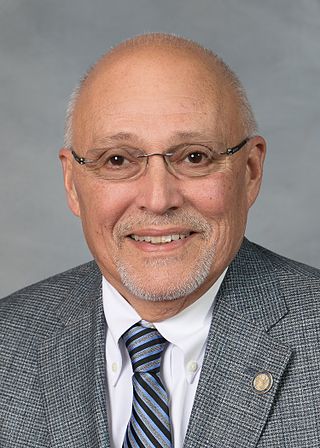
Shelby County is a county located in the U.S. state of Kentucky. As of the 2020 census, the population was 48,065. Its county seat is Shelbyville. The county was founded in 1792 and named for Isaac Shelby, the first Governor of Kentucky. Shelby County is part of the Louisville/Jefferson County, KY–IN Metropolitan Statistical Area. Shelby County's motto is "Good Land, Good Living, Good People".
Alcoholic beverage control states, generally called control states, less often ABC states, are 17 states in the United States that, as of 2016, have state monopoly over the wholesaling or retailing of some or all categories of alcoholic beverages, such as beer, wine, and distilled spirits.

The Texas Alcoholic Beverage Commission, or TABC, is a Texas public agency responsible for regulating, inspecting, and taxing the production, sale, and use of alcoholic beverages within the state. The agency was established in 1935 and is headquartered in Austin.
Alcoholic Beverage Control may refer to: State monopoly or regulation of alcohol beverages in alcoholic beverage control states

The Treasurer and Receiver-General of Massachusetts is an executive officer, elected statewide every four years.

The California Department of Alcoholic Beverage Control (ABC) is a government agency of the state of California that regulates the manufacture, distribution, and sale of alcoholic beverages.
The New Jersey Division of Alcoholic Beverage Control is an agency of the government of the state of New Jersey that regulates commerce in alcoholic beverages in that state.
The New Hampshire Liquor Commission is a government agency of the U.S. state of New Hampshire. The commission regulates the sale of alcoholic beverages in New Hampshire, one of 18 alcoholic beverage control states.
The North Carolina Alcoholic Beverage Control Commission is an agency of the government of North Carolina within the state's Department of Public Safety.
Executive Schedule is the system of salaries given to the highest-ranked appointed officials in the executive branch of the U.S. government. The president of the United States appoints individuals to these positions, most with the advice and consent of the United States Senate. They include members of the president's Cabinet, several top-ranking officials of each executive department, the directors of some of the more prominent departmental and independent agencies, and several members of the Executive Office of the President.
The Virginia Alcoholic Beverage Control Authority is one of the eleven public safety agencies under the Secretariat of Public Safety and Homeland Security for the Commonwealth. The agency administers the state's ABC laws with an emphasis on public service and a focus on protecting citizens by ensuring a safe, orderly and regulated system for convenient distribution and responsible consumption of alcohol.
David P. Rible is an American Republican Party politician, who has served as Director of the New Jersey Division of Alcoholic Beverage Control since July 2017. He had previously served in the New Jersey General Assembly representing the 30th Legislative District from January 10, 2012 until July 17, 2017, when he was appointed as Director of the ABC. Prior to redistricting, he represented the 11th Legislative District in the Assembly from January 8, 2008 to 2012.

The New York State Executive Department is the department of the New York state government that serves as the administrative department of the Governor of New York. This department has no central operating structure; it consists of a number of divisions, offices, boards, commissions, councils, and other independent agencies that provide policy advice and assistance to the governor and conduct activities according to statute or executive order. Its regulations are compiled in title 9 of the New York Codes, Rules and Regulations.

The Alabama Law Enforcement Agency, abbreviated as "ALEA", is a law enforcement agency serving the U.S. state of Alabama. It exists within the Executive Branch of State Government to coordinate public safety in Alabama. It was formed on 1 January 2015 by the merger of 12 state law enforcement agencies. The Secretary, its chief executive, is appointed by and serves at the pleasure of the Governor of Alabama. ALEA is divided into two functional divisions, the Department of Public Safety and the State Bureau of Investigations. The Secretary of ALEA is responsible for appointing a Director of both divisions, after consultation with the Governor.

Walter Lee Zachary Jr. is a Republican member of the North Carolina House of Representatives. He represents the 73rd district.

Edward H. "Ned" Thomson III is an American Republican Party politician who has represented the 30th Legislative District in the New Jersey General Assembly since August 2017. He replaced Dave Rible, who left office to serve as Director of the New Jersey Division of Alcoholic Beverage Control. Thomson had previously served as mayor of Wall Township.
The California Alcoholic Beverage Control Appeals Board is a quasi-judicial administrative court and constitutional office in the U.S. state of California. The Board hears appeals from final decisions of the Department of Alcoholic Beverage Control regarding the issuance of alcoholic beverage licenses, license conditions, protests against the issuance of licenses, and violations of law by licensees. The Board was founded in 1954 together with the Department; as required by the California Constitution, its members are selected by the Governor of California and confirmed by the California State Senate by a majority vote, and each newly appointed member must be from a different county than the other two at the time of their initial appointment.







